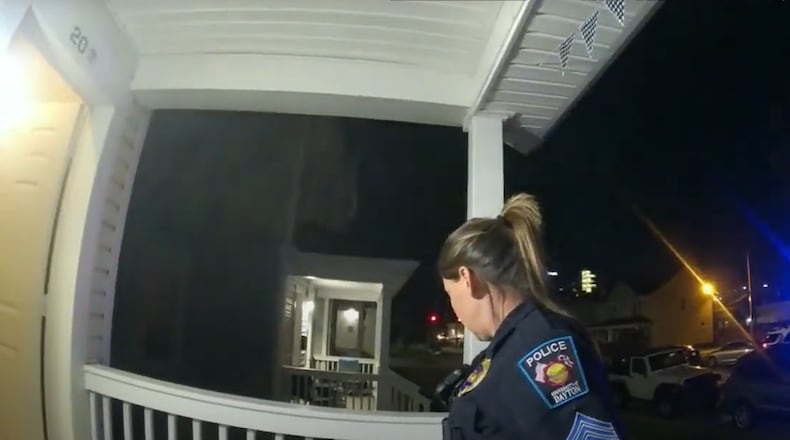But an outside organization – the Foundation for Individual Rights and Expression, or FIRE - that works on freedom of expression on college campuses has questioned UD’s decision to discipline the students, arguing the university’s students have a right to criticize the police.
“Regardless of whether the speech offended officers, it remains fully protected by the First Amendment,” said Dominic Coletti, program officer for speech rights advocacy at FIRE, in a letter to the university dated Aug. 15.
The university, however, said as a private institution, UD can establish its own rules for private living and learning communities. The First Amendment applies to government restrictions of speech.
“As a private institution, the University of Dayton can and does set high expectations of conduct for its students when their conduct affects the university community,” said Thomas Weckesser, executive director in the Office of the President, and Salvas Kidd, assistant vice president and chief of police, in a response to Coletti’s letter.
In body camera footage obtained by the Dayton Daily News, students in campus housing on the north side of campus can be seen yelling at UD’s police officers outside of the rowhouse. In response, two officers knocked on the door and detained a female in handcuffs, referring her to disciplinary action through the university.
Another male student came out of the apartment and pushed officers, resulting in one officer falling down a short flight of stairs off a porch. He was pepper sprayed, handcuffed and referred to disciplinary action.
FIRE objected to the university policy officers beginning the interaction with the students, saying the students’ speech in the rowhouse was not a reason for the police to knock on the door or arrest the students. The organization clarified it does not object to the officers arresting the student who pushed the police officer.
“UD’s own policies bar it from punishing the students for their expression of distaste towards law enforcement, however offensive it might have been to the officers,” Coletti wrote in a letter to UD’s president’s office on Aug. 15.
The new policy also allows peaceful protests on campus, if they are scheduled in advance and do not include overnight camping, among other requirements.
“It is within its rights to value other ideals over freedom of expression, though it should make explicit that it is doing so to give students fair warning that their speech may be curtailed,” Coletti said in a statement. “But as the university itself acknowledges even in its new, restrictive policy, seeking truth and knowledge is core to the mission of the university and depends on the ‘open exchange of ideas.’ When universities like UD say certain words or even ideas are off-limits, that exchange of ideas is hampered.”
About the Author


